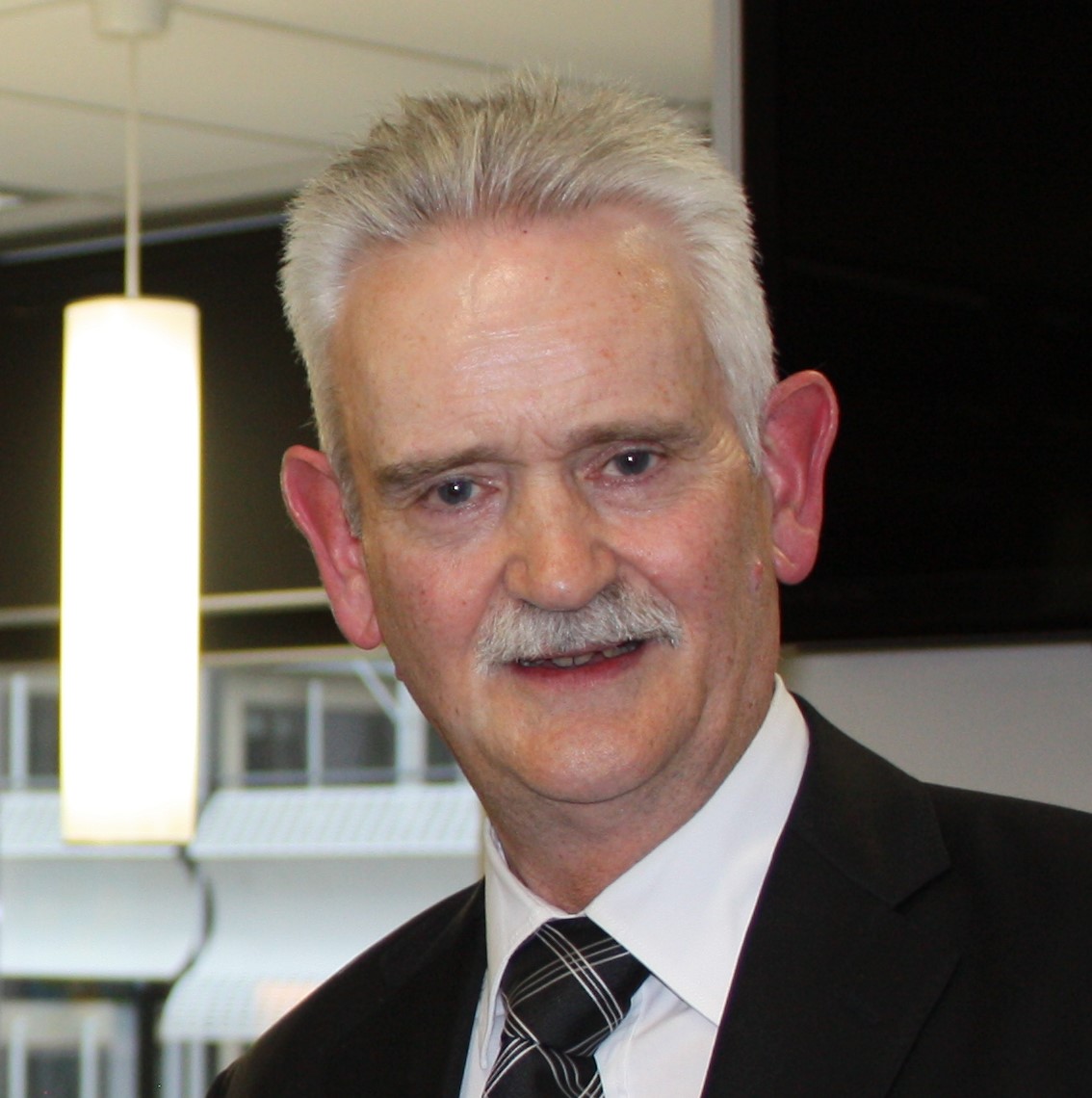 This week President Andrew reports on the induction of our newest Club member; last week’s meeting of the Club’s board, and offers some further reflections on democracy on the eve of the federal election.
This week President Andrew reports on the induction of our newest Club member; last week’s meeting of the Club’s board, and offers some further reflections on democracy on the eve of the federal election.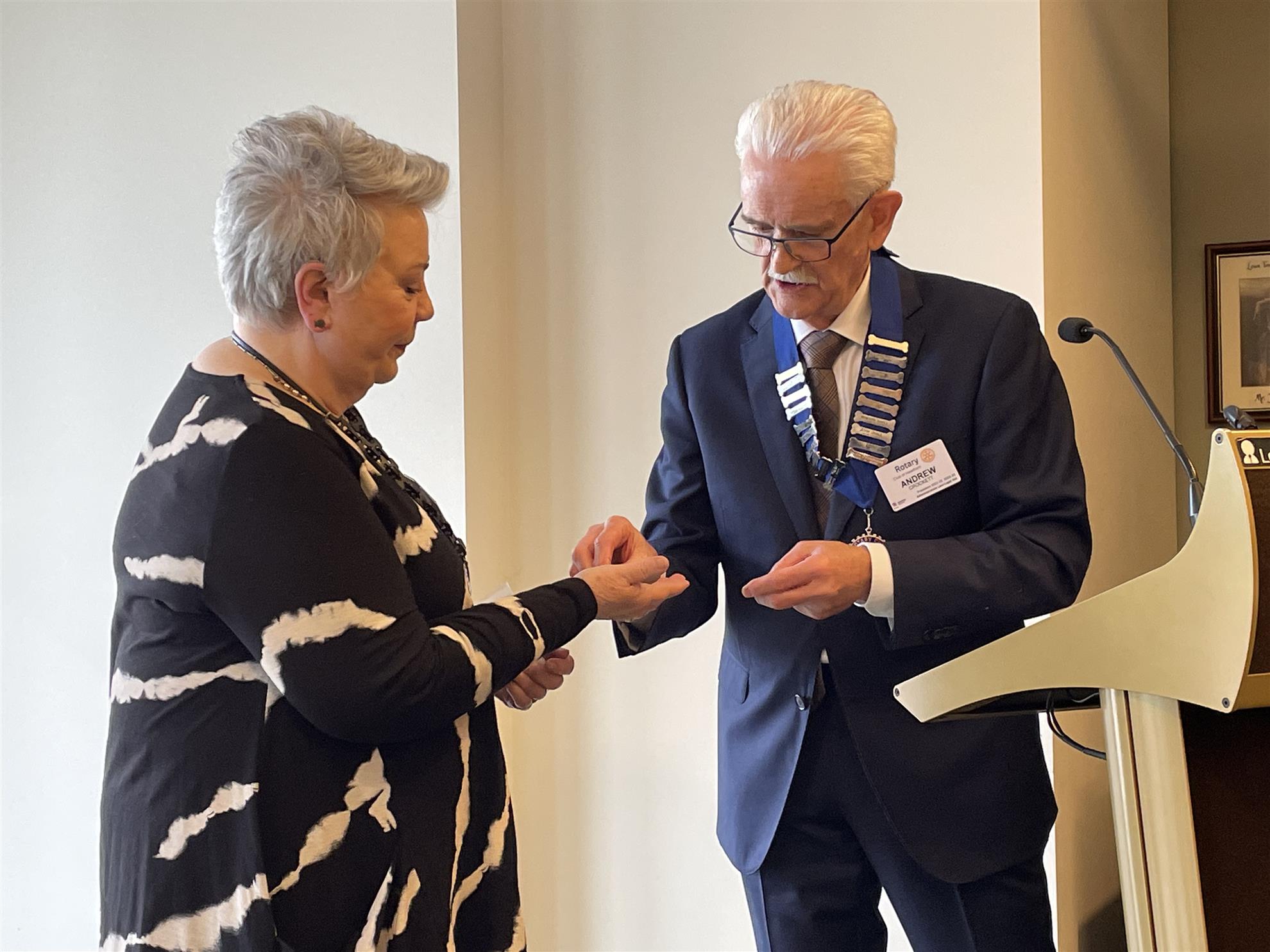
It was my pleasure at today’s meeting to induct our newest member, Rotarian Dorothy Gilmour, who has transferred to us from Rotary Southbank
In 2018, Dorothy and PP Mary Barry jointly founded the Rotary Safe Families initiative which has since developed into a significant national Rotary program. There are now plans to expand the program to New Zealand and the Pacific islands under the banner ‘Rotary Safe Families Oceanic’.
We are delighted that Dorothy has chosen Rotary Hawthorn as her new club and we are proud to become host Club of Rotary Safe Families.
Following her induction, Dorothy told us about the ‘Member behind the Badge’.
And what a story it is!  Dorothy gave us a tantalising insight - laced with amusing anecdotes - into a life of surprise twists and turns; of challenges overcome; of being cast headlong into the role of restaurateur in Gisborne, then menswear retailer in Geelong. Dorothy’s desire to help others, and a naturally empathetic nature, motivated another career change. After undertaking postgraduate studies in counselling, she taught counselling at masters level and established a practice in trauma and grief counselling, mediation and suicide prevention.
Dorothy gave us a tantalising insight - laced with amusing anecdotes - into a life of surprise twists and turns; of challenges overcome; of being cast headlong into the role of restaurateur in Gisborne, then menswear retailer in Geelong. Dorothy’s desire to help others, and a naturally empathetic nature, motivated another career change. After undertaking postgraduate studies in counselling, she taught counselling at masters level and established a practice in trauma and grief counselling, mediation and suicide prevention.
 Dorothy gave us a tantalising insight - laced with amusing anecdotes - into a life of surprise twists and turns; of challenges overcome; of being cast headlong into the role of restaurateur in Gisborne, then menswear retailer in Geelong. Dorothy’s desire to help others, and a naturally empathetic nature, motivated another career change. After undertaking postgraduate studies in counselling, she taught counselling at masters level and established a practice in trauma and grief counselling, mediation and suicide prevention.
Dorothy gave us a tantalising insight - laced with amusing anecdotes - into a life of surprise twists and turns; of challenges overcome; of being cast headlong into the role of restaurateur in Gisborne, then menswear retailer in Geelong. Dorothy’s desire to help others, and a naturally empathetic nature, motivated another career change. After undertaking postgraduate studies in counselling, she taught counselling at masters level and established a practice in trauma and grief counselling, mediation and suicide prevention.Dorothy has been a Rotarian for six years. During that time, she has held board and other positions at Rotary Melbourne and worked as a committee member in vocational service, membership, community welfare, website & media. She has also mentored club members and officers of Victoria Police and Ambulance Victoria.
We are fortunate to have such an energetic, resourceful and committed Rotarian join our Club.
There is a fuller report on Dorothy’s talk below.
Board meeting report
As you’d expect, the main item of business at the Board meeting last week was a discussion about filling the vacant positions of President-elect, Secretary, and Membership and Communication Director next year. I hope to be able to announce some progress in this regard in the next few weeks.
The Board also discussed arrangements for the changeover board meeting on 6 June; and whether we should proceed with the idea of instituting regular events with a vocational theme, which has been mooted for some time. This is something that the new board will consider early next year. One option is to use the fifth Tuesday of the month (which in 2022/23 will occur in August, November and May) to hold a vocational forum of some kind.
Visit to Rotary’s Disaster Aid Control Centre and the Royal Botanic Gardens in Cranbourne.
 Our last vocational visit for the year will be on Tuesday 14 June to Rotary’s Disaster Aid Control Centre and the Royal Botanic Gardens in Cranbourne.
Our last vocational visit for the year will be on Tuesday 14 June to Rotary’s Disaster Aid Control Centre and the Royal Botanic Gardens in Cranbourne. We are hiring a bus to take us there and back. The charge will be $60 per head which includes  transport and lunch at the Botanic Gardens.
transport and lunch at the Botanic Gardens.
 transport and lunch at the Botanic Gardens.
transport and lunch at the Botanic Gardens. Booking details will be available shortly. Please assist Vincent Chen by booking no later than 31 May so we can advise the bus company of the seating capacity of the vehicle we need.
Changeover Dinne r 25 June
r 25 June
 r 25 June
r 25 JuneInvitations for the Changeover Dinner on Saturday 25 June have been sent to members and guests.
The cost is $75.00 per person and includes a pre-dinner drink on arrival, a main course, a shared dessert platter, coffee and tea. Drinks after the first will be at bar prices. The dress code is Black and White attire which leaves plenty of scope for your sartorial imagination. You can come in formal dinner wear, or dress semi-formally with a black and white theme. Bookings are open via the Trybooking link in the invitation. Please RSVP by 17th June.
Next meeting by Zoom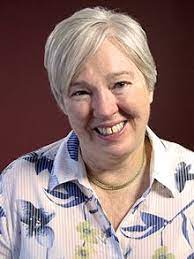

Next week is our monthly meeting by Zoom. Our speaker is Betty Kitchener OAM who will speak about the Mental Health First Aid Program which teaches people the skills to help someone who they're concerned about.
We will also be joined by two Auburn High School students who will report on the Santos Science Experience programs they attended with the financial assistance of the Club.
I hope you can join us. In the meantime, have a productive week and stay safe and well.
Thoughts for the Week
As we thankfully enter the final week of the federal election campaign we conclude our series of reflections on the strengths and vulnerabilities of democracy.
I’ve chosen two quotes, one from a 19th century French aristocrat and the other from an English writer.
Democracy does not give the people the most skillful government, but it produces what the ablest governments are frequently unable to create: namely, an all-pervading and restless activity, a superabundant force, and an energy which is inseparable from it and which may, however unfavorable circumstances may be, produce wonders. - Alexis de Tocqueville
Democracy’s ceremonial, its feast, its great function, is the election. - H.G. Wells
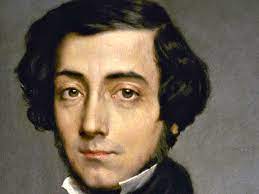
Alexis de Tocqueville (1805 - 1859) French aristocrat, diplomat, political scientist, political philosopher and historian. He is best known for his works Democracy in America and The Old Regime and the Revolution (1856). In both, he analysed the improved living standards and social conditions of individuals as well as their relationship to the market and state in Western societies. Democracy in America was published after Tocqueville's travels in the United States. Tocqueville was active in French politics, first under the July Monarchy (1830–1848) and then during the Second Republic (1849–1851). He retired from political life after Louis Napoléon Bonaparte's 1851 coup and thereafter began work on The Old Regime and the Revolution. Tocqueville argued the importance of the French Revolution was to continue the process of modernizing and centralizing the French state which had begun under King Louis XIV. He believed the failure of the Revolution came from the inexperience of the deputies who were too wedded to abstract Enlightenment ideals. Tocqueville was a classical liberal who advocated parliamentary government and was sceptical of the extremes of democracy. During his time in parliament, he was a member of the centre-left.
HG Wells (1866-1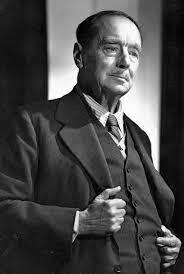 946) was an English writer. Prolific in many genres, he wrote dozens of novels, short stories, and works of social commentary, history, satire, biography and autobiography. Wells is best remembered for his science fiction novels and is sometimes called the ‘father of science fiction’. During his own lifetime, however, he was most prominent as a forward-looking, even prophetic social critic who devoted his literary talents to the development of a progressive vision on a global scale. A futurist, he wrote a number of utopian works and foresaw the advent of aircraft, tanks, space travel, nuclear weapons, satellite television and something resembling the World Wide Web.
946) was an English writer. Prolific in many genres, he wrote dozens of novels, short stories, and works of social commentary, history, satire, biography and autobiography. Wells is best remembered for his science fiction novels and is sometimes called the ‘father of science fiction’. During his own lifetime, however, he was most prominent as a forward-looking, even prophetic social critic who devoted his literary talents to the development of a progressive vision on a global scale. A futurist, he wrote a number of utopian works and foresaw the advent of aircraft, tanks, space travel, nuclear weapons, satellite television and something resembling the World Wide Web.
 946) was an English writer. Prolific in many genres, he wrote dozens of novels, short stories, and works of social commentary, history, satire, biography and autobiography. Wells is best remembered for his science fiction novels and is sometimes called the ‘father of science fiction’. During his own lifetime, however, he was most prominent as a forward-looking, even prophetic social critic who devoted his literary talents to the development of a progressive vision on a global scale. A futurist, he wrote a number of utopian works and foresaw the advent of aircraft, tanks, space travel, nuclear weapons, satellite television and something resembling the World Wide Web.
946) was an English writer. Prolific in many genres, he wrote dozens of novels, short stories, and works of social commentary, history, satire, biography and autobiography. Wells is best remembered for his science fiction novels and is sometimes called the ‘father of science fiction’. During his own lifetime, however, he was most prominent as a forward-looking, even prophetic social critic who devoted his literary talents to the development of a progressive vision on a global scale. A futurist, he wrote a number of utopian works and foresaw the advent of aircraft, tanks, space travel, nuclear weapons, satellite television and something resembling the World Wide Web.Sources: https://en.wikipedia.org/wiki/Alexis_de_Tocqueville; https://en.wikipedia.org/wiki/H._G._Wells